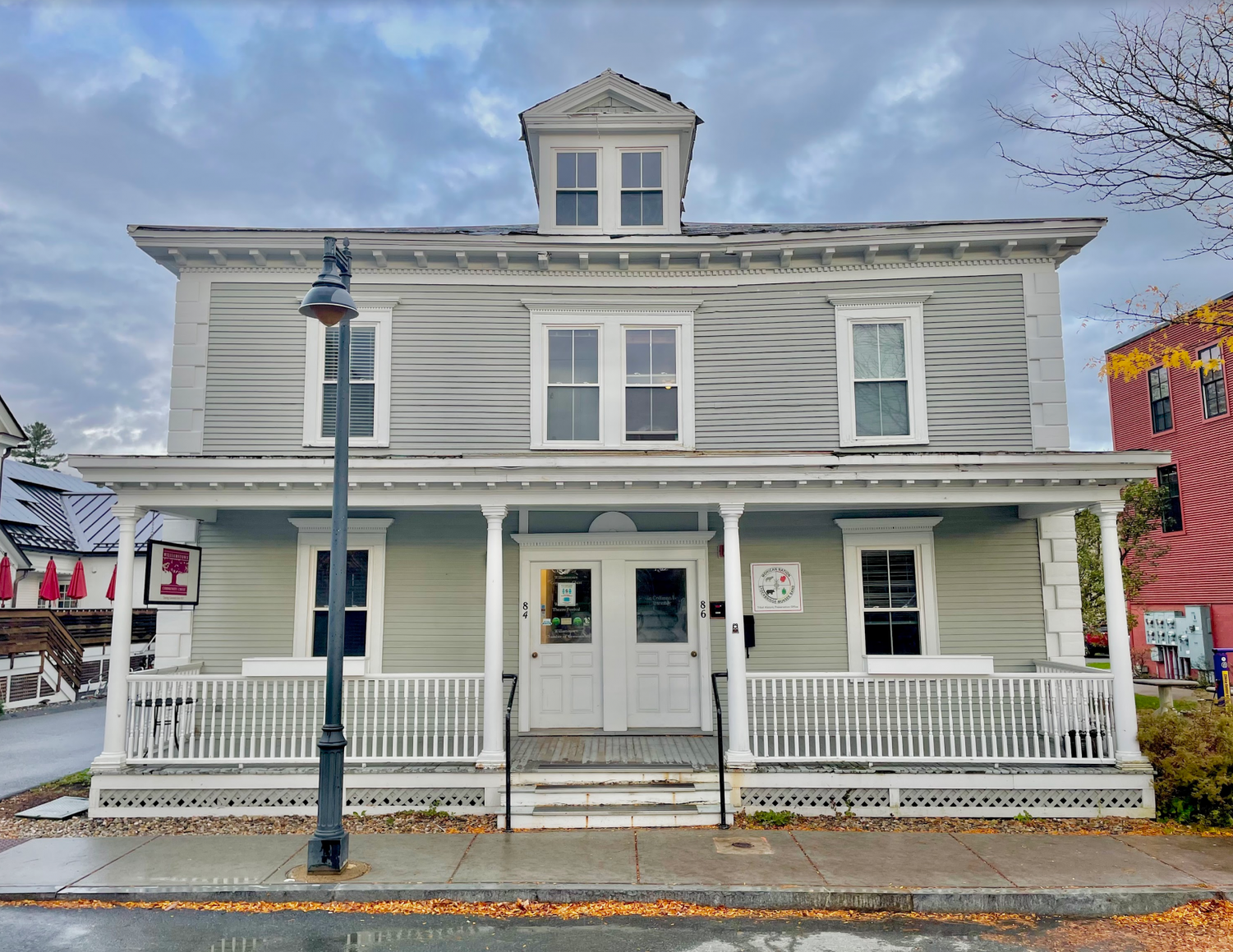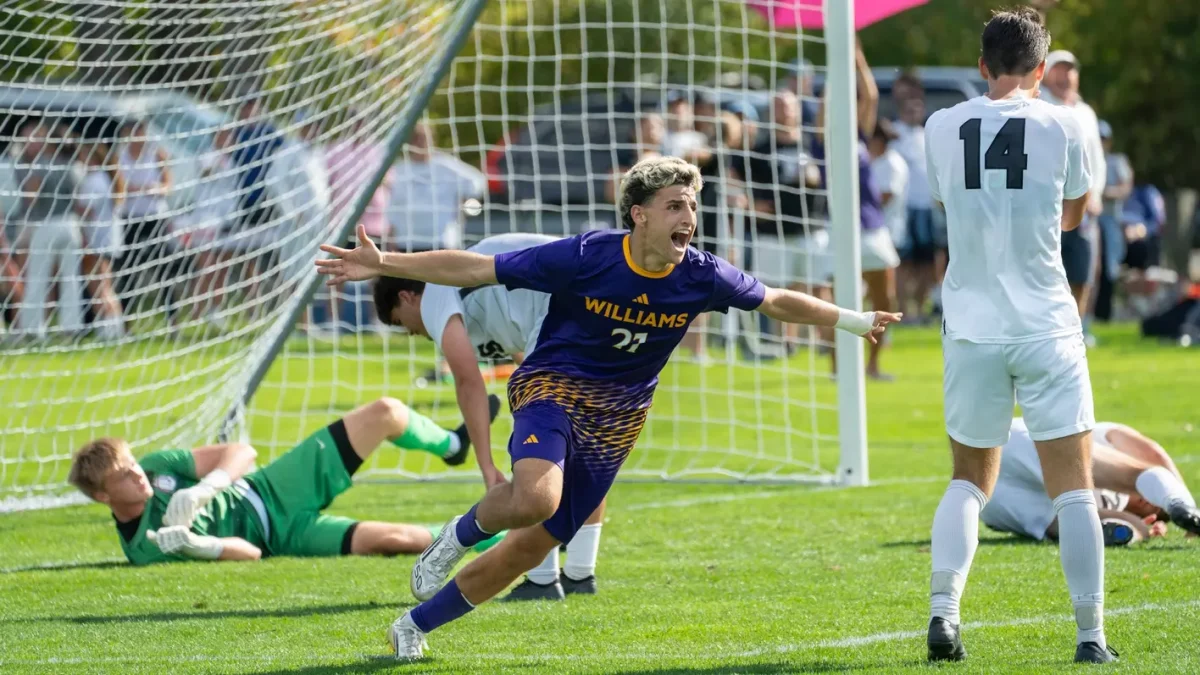College publishes land acknowledgment recognizing its place on ancestral Mohican land
October 20, 2021

The College has adopted a land acknowledgment recognizing that it stands on the ancestral territory of the Stockbridge-Munsee Mohicans, Vice President for Institutional Diversity, Equity, and Inclusion Leticia S. E. Haynes ’99 announced in an all-campus email on Oct. 14. The acknowledgment was written and adopted in collaboration with the Stockbridge-Munsee Historic Preservation Office and comes amid ongoing institutional conversations surrounding the College’s history.
The acknowledgment, which appears on the Office of Institutional Diversity, Equity, and Inclusion’s website, recognizes that the Stockbridge-Munsee community, “who are the indigenous peoples of the region now called Williamstown,” currently resides in Wisconsin, having been forced out of their ancestral territory.
“We pay honor and respect to their ancestors past and present as we commit to building a more inclusive and equitable space for all,” the acknowledgment concludes.
The Committee on Diversity and Community (CDC) drafted the acknowledgment with Assistant Professor of American Studies Eli Nelson and the Stockbridge-Munsee Historic Preservation Office. The office, which relocated to Williamstown from Troy, N.Y., in October 2020, repatriates ancestral remains and items of cultural significance to the Stockbridge-Munsee Community and protects cultural sites by consulting with the federal government on behalf of the tribe.
As the Historic Preservation Office, the CDC and Nelson formulated the statement, they discussed the importance of naming the Tribal Nations directly, noting the College’s commitment to taking action, and acknowledging the continuation of the Mohican people in the present rather than just the past, Historic Preservation Manager Bonney Hartley wrote in an email to the Record.
“I hope [the statement] will raise overdue awareness of Mohican history and homelands and plant a seed in the campus community to learn more and contribute in whatever way their program or skills allow,” Hartley said.
President Maud S. Mandel said that the growing relationship between the Stockbridge-Munsee community and the College was important to the creation of the land acknowledgment. “Restorative work … is an exceptionally important initiative for this college, and the land acknowledgment is significant,” Mandel told the Record. “[It is] part of that larger effort to think restoratively about the future.”
The land acknowledgment published on the College’s website shows significant differences from the draft written by the CDC, Nelson, and the Stockbridge-Munsee Historic Preservation Office. Notably, the published acknowledgment does not mention the role that Ephraim Williams Jr.’s family played in the displacement of the Mohican people or that Williams, the founder of the College, was an enslaver — both components of the CDC’s draft of the acknowledgment. In contrast to the CDC draft, the final acknowledgment also does not mention the presence of the Historic Preservation Office in Williamstown.
“The Tribe felt that it would be appropriate in the case of Williams College to directly state the relationship of the founder’s family to the Tribe’s dispossession in Stockbridge,” Hartley wrote. “We also suggested that stating direct actions that Williams has taken to partner in beneficial ways to our work — such as the office space and internships — would be good. Ultimately these were not included in the shorter statement that was adopted.”
Haynes did not provide comment on a request for comment on this point sent a few hours before the end of the business day Tuesday. Nelson did not provide comment for this article by press time.
The CDC’s draft of the acknowledgment noted that the College has begun to work with the Historic Preservation Office “as part of its commitment to building a more equitable space.”
“Institutions of higher education teach history, along with many other subjects, and their goal is to educate future leaders. Thus, it seems fitting that these institutions should also examine their own histories, acknowledge how they came to be, and seek to reckon with and repair any harm they’ve caused in fulfillment of their missions,” Haynes wrote in an email to the Record.
Hartley added that the Stockbridge-Munsee are pleased that the College is acknowledging the role their ancestors played in stewarding Williamstown’s land, but that the College must continue to build on this relationship.
“[The land acknowledgment] situates us on the same page that our ancestors recognized; however, the ways that the College has and will continue to back the statement up with practical, beneficial action … through our partnership are how we actualize the Land Acknowledgment,” Hartley wrote.
Cameron Pugh contributed reporting.








